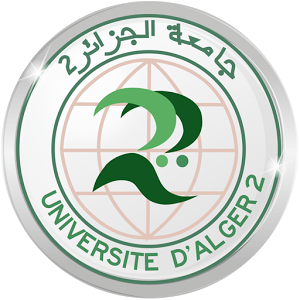
Foreign Languages, Societies and Transculturality: Contexts, Issues and Perspectives (Algiers 2 University)
Call for paper: Deadline extended to Friday, 2 June 2023
In response to some requests, the deadline for submission of the proposals has been extended until Friday, 2 June 2023
First International Conference organised by the Faculty of Foreign Languages,
Algiers 2 University
24-25 and 26 October 2023
"Foreign Languages, Societies and Transculturality: Contexts, Issues and Perspectives"
« I am large […] I contain multitudes » de Walt Whitman (1855), in: “Song of Myself”/ Leaves of Grass
Foreign languages remain, indisputably, at the heart of the concerns of university researchers wherever they are, in the rest of the world or in Algeria.
Speaking, writing and communicating in a specific language necessarily implies opening up to both one's own culture and to others. However, reflection on the question encounters three difficulties: the first relates to working out an intrinsic definition of ‘culture’; should we strip it of any prefix annexation or, on the contrary, refuse to consider it outside it, as anything but interculture, or intraculture, or transculture, .... ? The second difficulty is related to the different approaches to be implemented in order to achieve the "nice" crossing/intersection of foreign language and transculturality: in this case, how can we reconcile these different domains with their complexity, their borders, and the various fields of analysis? The third difficulty– though not reducible to these three unique difficulties - concerns the definition of transculturality in relation to foreign languages: should we consider transculturality as a multidimensional phenomenon where reality is confused with cultural mutation ( a differential paradigm shift since the 1990s, Wolfgang Welsch 1997) or is it part of a phenomenological dynamics of hybrid constructs (third space [Bhabha])?
What is certain is that transculturality engenders a critical (transdisciplinary) reflection on discursive constructs, based on an operative logic parallel to the so-called "intercultural" or "multicultural" concepts, calling upon the mechanisms of the dialectics of inclusion and exclusion
The major aim of this conference is to overcome these degrees of difficulty and to grasp diversity in the plurality of representations of culture and the richness of the configurations of foreign languages at the literary, linguistic, didactic, historical, sociological and artistic levels.
As such it reflects on the forms that transculturality can take but also its modes, its impact and the stakes involved in the perception and the teaching/learning of foreign languages.
What is the value of its epistemological scope in the different discourses? What are the articulatory modes that allow its concretization in the field? How does it contribute to the construction of meta-reflexive spaces through operative processes?
The Conference is structured into four extensive, but not exhaustive axes:
1. Languages, societies and cultures :
· Post-migratory movements and cultural transformations
· Transculturality and transnationalism (Transculturalism and transnationalism)
· Identities in construction...identities in the making.
· Foreign languages: dialogue and integration
2. Arts and Literature:
· Generic hybridity and poetic construction
· Transhumanism and science fiction
· Travel literature and syncretic writing
· Pictoriality and transmedia
3. Language and Translation Sciences :
· Language, languages and hybridism
· Digital transmediadiscourse
· Translation and interpreting between mediation and transfer
· Transculturality, ethnographic and anthropological discourses
4. Didactics and Educational Sciences :
· Transcultural pedagogy and skills acquisition
· Languages for specific purposes: (trans)cultural perspectives
· Language planning in a multilingual context
· Foreign language teaching and the socio-economic environment
Proposals for papers of approximately half a page (title, abstract, and key words) accompanied by a short biographical note should be sent electronically before June 2nd , 2023 to the following address: i.conference.ffl@gmail.com
Conference Languages: English, French, German, Spanish or Italian.
Presentation modalities: Online or Onsite
CALENDAR:
June 2nd, 2023: deadline for the submission of abstracts.
June 15th, 2023: notification to participants
October 24th, 25th, 26th, 2023: holding of the international conference
June 2024: publication of the accepted articles
In collaboration with LIRADDI research laboratory